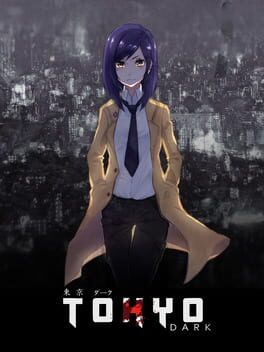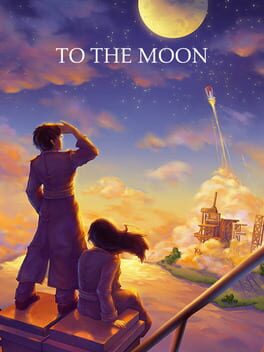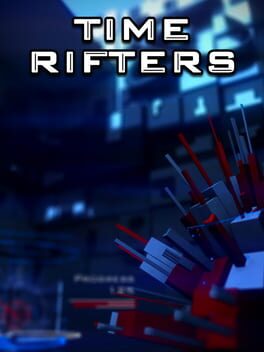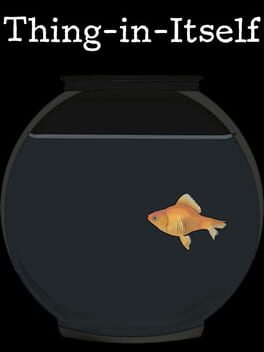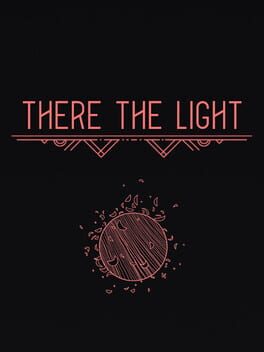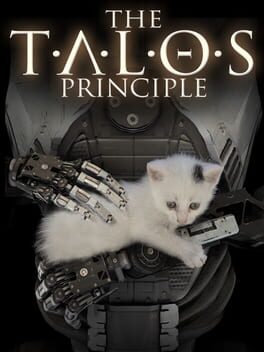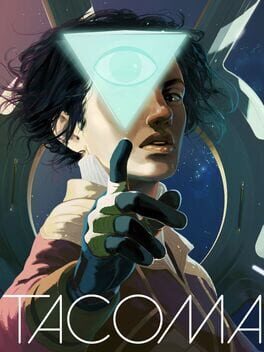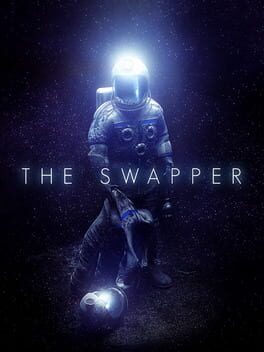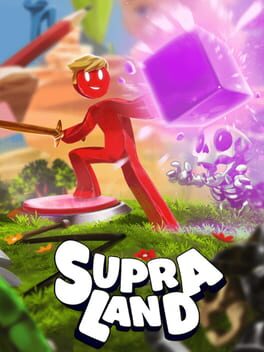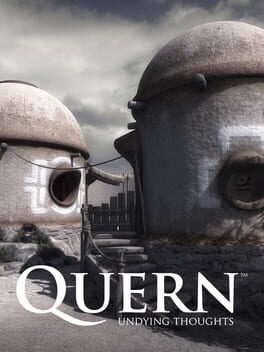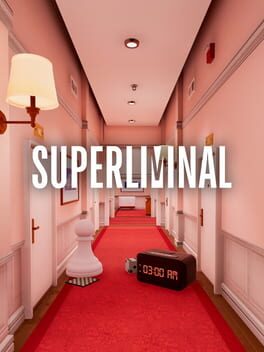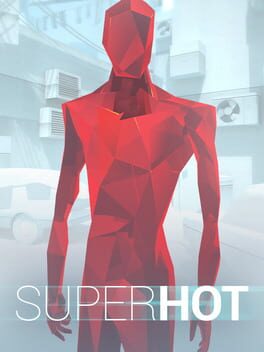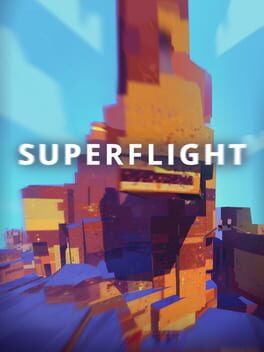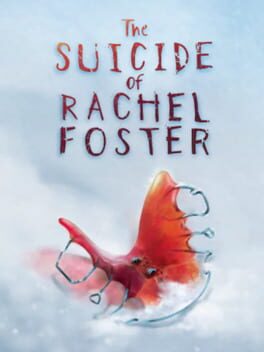TidB
2017
2011
2014
It's a nice concept, but it's not being used in an interesting way. It feels a bit like a tower defense game, even more so like the variants allowing you to participate directly during a wave, but the interactions between the past versions of yourself and their different equipment don't create much complexity - and after all, you're just shooting stationary blocks most of the time.
2017
2019
Like a stereotypical indie adventure, it is filled with references to archaic civilizations and astronomy, depicted using the aesthetics of murals and astronomy, and it's all not very surprising. Where this game shines is its sound, combining interactable accessories and a looped, layered background music. And generally, the first and last location are the more stylized, more unique and as such more memorable environments. So while this game won't change your life, it raises interests in the new projects the author is pursuing.
2014
Good puzzler with below-average narrative. Portal-like narratives always have the tough task of managing the breaks between pure puzzling and story sections. Despite coming before all the games that really made use of that idea, Talos successfully evades it for quite some time, but sooner or later arrives at the same conclusion, in such a jarring fashion that it is very similar to both Portal games and especially Portal Stories: Mel (which came a year later though). There's an argument to be made regarding its early release date; indie puzzle adventures certainly weren't at the point they are today, but really - Qube came three years before that and did a better job at integrating narrative and gameplay, albeit being mediocre and trying less in general.
It just feels like there's no structure, the whole world feels disjointed and very game-like in an unreflected way. Most of the narrative structure is walking between the different, randomly assembled parts of the level and checking on a terminal how the story continues. And the story itself is still interesting, but reading line after line with no effort being spent on making a connection to the tasks you're doing 95% of the time feels boring in a similar way to The Witness. As in Portal, it gets better once you're breaking out of the constant puzzle routine and look behind the curtain, but it stays underwhelming throughout.
Related to both the level design and narrative is the lack of aesthetics, it really just does not look good. It has the same look as Serious Sam 3 but it's much more unacceptable in this slower, more considered environment that's not supposed to be naturalistic. Once again, the parts that aren't the focused puzzle rooms are better but too sparse.
I don't know. It's certainly different, but a safer option like The Turing Test is genuinely better. This narrative feels like an afterthought, leaves you wanting more, but never getting it.
It just feels like there's no structure, the whole world feels disjointed and very game-like in an unreflected way. Most of the narrative structure is walking between the different, randomly assembled parts of the level and checking on a terminal how the story continues. And the story itself is still interesting, but reading line after line with no effort being spent on making a connection to the tasks you're doing 95% of the time feels boring in a similar way to The Witness. As in Portal, it gets better once you're breaking out of the constant puzzle routine and look behind the curtain, but it stays underwhelming throughout.
Related to both the level design and narrative is the lack of aesthetics, it really just does not look good. It has the same look as Serious Sam 3 but it's much more unacceptable in this slower, more considered environment that's not supposed to be naturalistic. Once again, the parts that aren't the focused puzzle rooms are better but too sparse.
I don't know. It's certainly different, but a safer option like The Turing Test is genuinely better. This narrative feels like an afterthought, leaves you wanting more, but never getting it.
2017
I love this game and its characters a lot. It shows how well you can employ two narrative devices that are usually subpar: cutscenes and experiencing something from the past. What a great journey, and something rare for lonely space stories happens: you get to go home with a good feeling, and I appreciate that. In the end, it was always about the people.
2013
The prettiest depiction of space we have seen in games, and that's the best part about it. There's not much to say really, the cloning and swapping mechanic works well but never reaches the appeal that say, portals have. What I like is how it ties into the ending though, a very good closure and reminiscent of Soma.
2017
2019
It's a game-game in a way reminiscent of A Hat in Time, following a strong theme but being undisguised gameplay first and foremost. It's got so many puzzles, powers and possibilities and just an unbelievable amount of stuff packed into it, it's a joy. This also makes it thematically ambiguous and uninspired, there are a lot of fourth-wall-jokes and references that aren't surprising or clever. But still, good fun for a long time and there's more coming.
There were about a billion opportunities that could've made this more than just mediocre, and maybe it's just a sign of its release date.
The island itself with its techno-mystic charm reminded me of Physicus but in a similar fashion was slowed down by convoluted paths and constant pacing between locations. The puzzles are mostly good and environmental, but brought down by three factors: purpose, usability and recovery.
It is only natural for puzzles to gradually unlock the world, but it can be done in vastly different ways. Quern often uses the most obvious way: keys and even more egregious, parts of keys. And that just doesn't feel good after a while, there needs to be a purpose beyond getting access to another facility that also makes keys.
Most puzzles make sense, but the later parts often switch to environment-unrelated minigames which can be terrible to solve - if I see another gamedev use the inversion puzzle (light up all points using four buttons that invert random patterns) I will explode. And these are then often chained together and/or completely overengineered, pressing a lot of buttons and levers for simple things.
The puzzles are usually organized in linear paths and concentrated in the same room, but trouble starts if they're scattered about for no reason and even worse if you happen to miss something, as there's no joy in running around on the island and you don't even know what you could have missed.
This is not helped by the generally grey and dull appearance, it's extremely monotone and the aesthetics serve no purpose - the whole game could've been in a sci-fi setting and would work the exact same way. And while it's clear that the puzzles are environment-related and varied to make this an adventure, the narrative is lacking too, resulting in random exposition towards the end and, of course, le epic final choice!!!
Overall, it's not that bad; it's just arbitrary and feels like playing an adventure version of Far Cry. Just play Aporia instead (it only came a year later and despite a more lacking narrative, has a way better puzzle-world interaction).
The island itself with its techno-mystic charm reminded me of Physicus but in a similar fashion was slowed down by convoluted paths and constant pacing between locations. The puzzles are mostly good and environmental, but brought down by three factors: purpose, usability and recovery.
It is only natural for puzzles to gradually unlock the world, but it can be done in vastly different ways. Quern often uses the most obvious way: keys and even more egregious, parts of keys. And that just doesn't feel good after a while, there needs to be a purpose beyond getting access to another facility that also makes keys.
Most puzzles make sense, but the later parts often switch to environment-unrelated minigames which can be terrible to solve - if I see another gamedev use the inversion puzzle (light up all points using four buttons that invert random patterns) I will explode. And these are then often chained together and/or completely overengineered, pressing a lot of buttons and levers for simple things.
The puzzles are usually organized in linear paths and concentrated in the same room, but trouble starts if they're scattered about for no reason and even worse if you happen to miss something, as there's no joy in running around on the island and you don't even know what you could have missed.
This is not helped by the generally grey and dull appearance, it's extremely monotone and the aesthetics serve no purpose - the whole game could've been in a sci-fi setting and would work the exact same way. And while it's clear that the puzzles are environment-related and varied to make this an adventure, the narrative is lacking too, resulting in random exposition towards the end and, of course, le epic final choice!!!
Overall, it's not that bad; it's just arbitrary and feels like playing an adventure version of Far Cry. Just play Aporia instead (it only came a year later and despite a more lacking narrative, has a way better puzzle-world interaction).
2019
Most of this rating is because of the gameplay, no way around it. It plays with more than just the size of objects unlike you'd initially expect, and it adds a lot of breaks to the test chamber progression. But it really feels like a concept game, with a rather unmotivated narrative and ending and a wishy-washy lighthearted tone.
When will Portal's influence end? The constant test chamber progressions, lighthearted commentary and breaks into a more 'real' world have been done in here, The Talos Principle, The Turing Test, The Spectrum Retreat, Dreamo and Echo, how long has this been going on with no real innovation? But hey, it's still good.
When will Portal's influence end? The constant test chamber progressions, lighthearted commentary and breaks into a more 'real' world have been done in here, The Talos Principle, The Turing Test, The Spectrum Retreat, Dreamo and Echo, how long has this been going on with no real innovation? But hey, it's still good.
2016
I appreciate it mainly for its style, far away from anything shooters usually display, even in their more stylized variants. The gameplay though, it doesn't work as well as you think it should and Severed Steel did a much better job at this in more varied levels, and even Ghostrunner had a better feeling at dodging bullets and enemies. In any case, Superhot was first and set a good example, and fortunately somehow avoided having its Supreme-esque style copied.
2017
Fun enough, but it shows the limitations of the early indie games using procedural generation in the wake of No Man's Sky, where there are barely any aesthetic considerations beyond a color palette - there's probably a lot of work behind generating levels that work with the gameplay, but after the tenth color swap, you'd really want to see something else than scattered mountains and flying rocks.
I always thought that my personal problem with horror stories is that they have some handwave-y supernatural 'explanation' of the events, but now I'm not so sure if I like the rational version more. In hindsight, I can't find a real fault with the main narrative but it wasn't that memorable either. The entire hotel design is nice and well integrated in your routine, and changes throughout. And I like that while it's the obvious 'you're completely alone in a giant empty hotel' setting, it doesn't pressure you too much with some artificial suspense, but it is instead built up very naturally.
But as so often with the nice premises, the end just fades out and nothing really gets resolved, and the ending, regardless of the final choice (can't avoid this...) is very questionable. It's also the problem of the two storylines not being connected to one another very well - at some point, the concrete hotel location and the backstory you get handed over the phone actually do overlap but most of the time, it's like playing a game while listening to a true crime podcast. It's still worth it to get a glimpse of how The Shining would work as a game.
But as so often with the nice premises, the end just fades out and nothing really gets resolved, and the ending, regardless of the final choice (can't avoid this...) is very questionable. It's also the problem of the two storylines not being connected to one another very well - at some point, the concrete hotel location and the backstory you get handed over the phone actually do overlap but most of the time, it's like playing a game while listening to a true crime podcast. It's still worth it to get a glimpse of how The Shining would work as a game.
